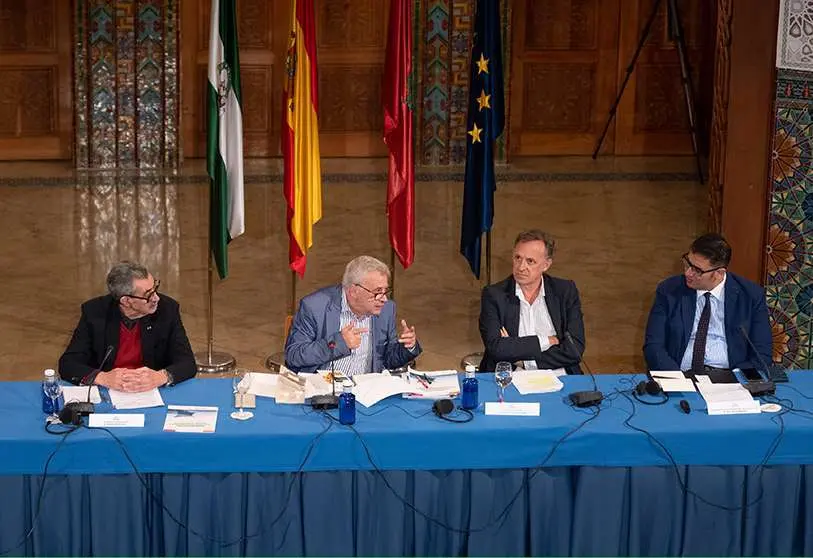Andalucía: lo que une a España y Marruecos

"The first problem with our knowledge of our history is that we do not know each other. But we don't teach it either, nor do we explain it in schools or in history books. Andalusia has two identity roots. But we only recognise one", said Jerónimo Páez during his intervention in the last panel of the conference "Andalusia, Euro-Mediterranean nexus Spain-Morocco", organised by the magazine Atalayar and the Three Cultures Foundation of the Junta de Andalucía.
"Andalusia has Maghrebi, Muslim, Oriental and Moroccan roots", continued Jerónimo Páez, a lawyer and expert in history and international relations. The man from Granada, a former Teléfonica employee with a very active career in various Andalusian institutions, defended Andalusia's past, which is more closely linked to Morocco, in a conference dedicated to extolling what the autonomous community and the Maghreb country have in common.

"When I crossed the Strait of Gibraltar, I arrived in the city in the world that most resembles Granada: Fez. Someone had told me the wrong story, because I didn't even know it was Fez", the veteran Andalusian jurist went on to explain. During his turn to speak, Páez reviewed the great historical milestones for which the Almohads and Almoravids are responsible and which have shaped the identity and history of Spain for centuries.
"The problem begins with the conquest of Granada in 1492 by the Catholic kings, when a gap opens up and two separate worlds confront each other," Páez added. The shared origins of Andalusia and Morocco is one of the main reasons why, in Páez's opinion, both regions must grow together in the future. Páez's speech was part of the current of understanding between the two shores promoted by the conference and the Three Cultures of the Mediterranean Foundation.

Rachid Tafarsiti, historian and writer from Tangiers, agreed with the thesis put forward by his colleague from Granada. So did Francisco Javier Arroyos, director of Andalucía Global, an agency of the Andalusian regional government. Arroyos explained the tools that Andalusia has at its disposal to promote and manage relations with neighbouring Morocco, in a relationship of a certain asymmetry, due to the lack of autonomous powers for foreign policy with a non-EU state. "Andalusia reinforces its role through the areas in which it can have competence. That is to say, culture, sports, tourism," Arroyos summarised. According to the head of the Andalusian agency, these areas are points from which it can work to strengthen relations with its neighbour, regardless of the cyclical problems that may exist between the Spanish and Moroccan states. "Andalusia can promote an improvement in mutual knowledge, which is one of the recommendations of the Elcano Royal Institute. Improving the perception of the other," Arroyos added.

Despite the Junta's efforts to follow Elcano's recommendations, the speakers, moderated by the expert on Spanish-Moroccan cooperation, Nourdine Mouati, recalled that only the recommendations on trade, which often tends to dominate all the primes from which relations between the two countries are interpreted, have been fulfilled.
The speakers agreed that the promotion of cultural, social and living aspects, outside of trade, should be a priority if relations between Spain and Morocco are to be in the best possible health in the future.








